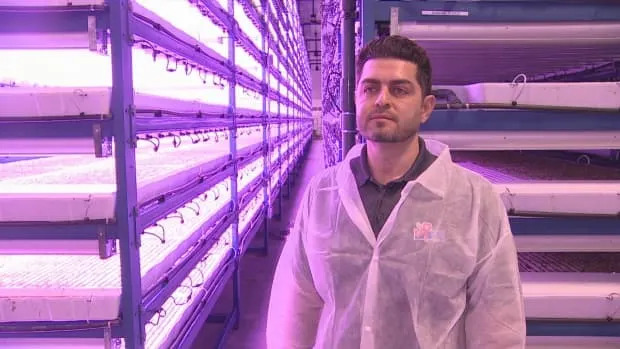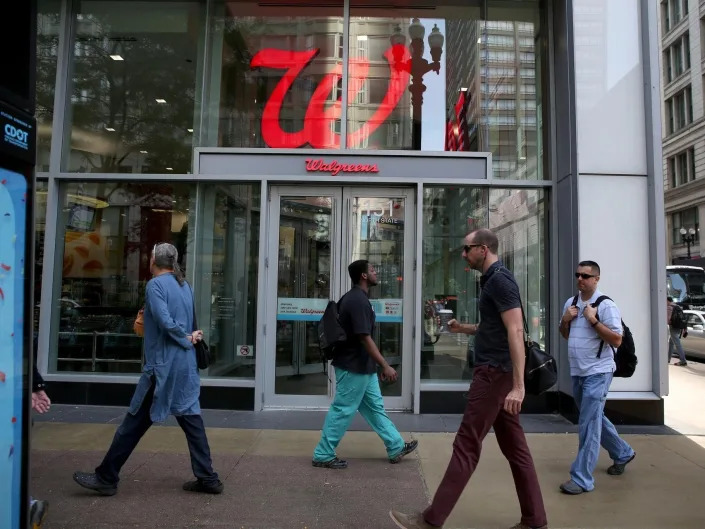Scientists discover fire records embedded within sand dunes
The discovery could expand scientific understanding of fire histories to arid regions around the world
Peer-Reviewed PublicationIMAGE: THE COOROIBAH WILDFIRE SWEEPS DOWN THE COOLOOLA SAND DUNES IN AUSTRALIA. view more
CREDIT: PHOTO BY MICHAEL FORD
Knowing how the frequency and intensity of wildfires has changed over time offers scientists a glimpse into Earth’s past landscapes, as well as an understanding of future climate change impacts. To reconstruct fire records, researchers rely heavily on sediment records from lake beds, but this means that fire histories from arid regions are often overlooked. Now, a new study shows that sand dunes can serve as repositories of fire history and aid in expanding scientific understanding of fire regimes around the world.
Published May 11 in Quaternary Research, the study is the first to examine sedimentary records preserved in foot-slope deposits of sand dunes. The research team, led by Nicholas Patton, Ph.D., a postdoctoral researcher now at DRI, studied four sand dunes at the Cooloola Sand Mass in Australia. Australia is one of the world’s most fire-prone landscapes, with a long history of both natural and cultural burning, and vast expanses without lakes or ponds to gather sedimentary records from. The researchers aimed to prove that these sand dune deposits could be used to reconstruct reliable, multi-millennial fire histories. These previously unrecognized archives could potentially be used in arid regions around the world to fill knowledge gaps in places where fire shapes the landscape.
“Many fire and paleoclimate records are located where there's a lot of water bodies such as lakes, peats, and bogs,” Patton says. “And because of this, most global models really have a bias towards temperate regions.”
The Cooloola Sand Mass consists of enormous – up to 240-meter-tall – sand dunes that build up at the coast and gradually shift inland from the power of the wind. By identifying the age of the dunes using a technique called optically stimulated luminescence dating, or OSL, Patton’s team found that the four dunes span the Holocene, representing the last approximately 12,000 years.
Once a dune is stable, meaning it is no longer growing but slowly degrading, the force of gravity acts on the dune slopes to collect falling sand at the base, along with the remnants of charcoal from local fires that deposited on the dune’s surface. This sediment builds up over time, layering charcoal from fire events that can be reliably identified using radiocarbon dating.
“We were digging soil pits at the base of the dunes and were seeing a lot of charcoal – more charcoal than we expected,” says Patton. “And we thought maybe we could utilize these deposits to reconstruct local fires within the area.”
Patton found that on the younger dunes (at 500 years old and 2,000 years old), charcoal layers represented individual fires, because the steep slope of the dunes quickly buried each layer. However, the older dunes (at 5,000 years old and 10,000 years old) had more gradual slopes that blended charcoal from different fires over time, providing a better understanding of periods of increased or decreased fire frequency.
The dunes offered localized fire histories from within an approximate 100-meter radius, so fire records vary somewhat amongst the four dunes, which spanned approximately 2 kilometers. However, Patton’s team compared their results to other fire records from the region found in lake and swamp deposits. Similar to the regional records, their findings showed three major periods of fire activity over the past 7,000 years.
The researchers write that similar records are likely held in sand dunes around the world, and that regions like California and the Southwest U.S. could benefit from a better understanding of regional fire history. Embedded within the fire records is not only information about natural wildfires, but also the way that humans influenced fire regimes.
“Fire histories are important for understanding how fire was used in the past for cultural purposes, whether that was to clear fields for agriculture or for hunting,” Patton says.
Patton hopes to continue this line of research at other dunes near the Cooloola Sand Mass that are nearly 1 million years old to obtain a long-term fire history for the region. Because Australia has had human communities for at least 60-70 thousand years, and quite possibly longer, these records could help understand the relationship between humans and historical fire regimes.
“These kinds of long-term records aren't always available within lake sediments, but they might be available within these dune deposits,” Patton says. “That's pretty exciting.”
###
More information: The full study, Reconstructing Holocene fire records using dune foot-slope deposits at the Cooloola Sand Mass, Australia, is available from Quaternary Research.
DOI: https://doi.org/10.1017/qua.2023.14
Study authors include: Nicholas Patton (DRI/Univ. of Canterbury, NZ/Univ. of Queensland, AUS), James Shulmeister (Univ. of Canterbury, NZ/Univ. of Queensland, AUS), Quan Hua (Australian Nuclear Science and Technology Organization), Peter Almond (Lincoln University, NZ), Tammy Rittenour (Utah State Univ.), Johanna Hanson (Univ. of Canterbury, NZ), Aloysius Grealy (Univ. of Queensland, AUS), Jack Gilroy (Univ. of Queensland, AUS), Daniel Ellerton (Univ. of Queensland, AUS/Stockholm Univ.)
About DRI
The Desert Research Institute (DRI) is a recognized world leader in basic and applied environmental research. Committed to scientific excellence and integrity, DRI faculty, students who work alongside them, and staff have developed scientific knowledge and innovative technologies in research projects around the globe. Since 1959, DRI’s research has advanced scientific knowledge on topics ranging from humans’ impact on the environment to the environment’s impact on humans. DRI’s impactful science and inspiring solutions support Nevada’s diverse economy, provide science-based educational opportunities, and inform policymakers, business leaders, and community members. With campuses in Las Vegas and Reno, DRI serves as the non-profit research arm of the Nevada System of Higher Education. For more information, please visit www.dri.edu.
JOURNAL
Quaternary Research
ARTICLE TITLE
Reconstructing Holocene fire records using dune footslope deposits at the Cooloola Sand Mass, Australia
ARTICLE PUBLICATION DATE
11-May-2023
Scientists find fire records inside sand dunes
IMAGE: FRASER ISLAND FIRE ON K’GARI IN 2020 WHICH BURNED OVER 50% OF THE ISLAND. view more
CREDIT: QUEENSLAND FIRE AND EMERGENCY SERVICES
A previously unrecognised sedimentary archive in sand dunes could unlock a repository of fire records, a discovery that could expand fire histories across the globe.
The research, conducted by Dr Nicholas Patton during his PhD at The University of Queensland, has solved a persistent problem facing historians investigating changing fire patterns.
“Knowing how the frequency and intensity of wildfires has changed over time offers scientists a glimpse into Earth’s past landscapes, as well as an understanding of future climate change impacts,” Dr Patton said.
“To reconstruct fire records, researchers usually rely heavily on sediment records from lake beds, but this means that fire histories from dryland regions are often overlooked.”
“We’ve now shown that sand dunes can serve as repositories of fire history and aid in expanding scientific understanding of fire regimes around the world.”
The study is the first to systematically examine sedimentary records preserved in foot-slope deposits of sand dunes – specifically, four sand dunes at the Cooloola Sand Mass in Queensland, looking at approximately 12,000 years of history.
The researchers aimed to prove that these sand dune deposits could be used to reconstruct reliable, multi-millennial fire histories.
“The Cooloola Sand Mass consists of large sand dunes that were created off the coast and moved inland from the power of the wind,” Dr Patton said.
“We were digging soil pits at the base of the dunes and were seeing a lot of charcoal – more charcoal than we expected.
“And we thought maybe we could utilise these deposits to reconstruct local fires within the area.”
They were correct, and were delighted to see that their dune-based fire history findings successfully matched other fire records from the region found in lake and swamp deposits.
“We found that on the younger dunes – at 500 years old and 2,000 years old – charcoal layers represented individual fires, because the steep slope of the dunes quickly buried each layer,” Dr Patton said.
“However, the older dunes – at 5,000 years old and 10,000 years old – had more gradual slopes that blended charcoal from different fires over time, providing a better understanding of periods of increased or decreased fire frequency.”
The dunes offered localised fire histories from within an approximate 100-meter radius, so fire records varied somewhat amongst the four dunes, which spanned approximately two kilometres.
“Similar records are likely held in sand dunes around the world, and regions like California and the Southwest U.S. could benefit from a better understanding of regional fire history,” Dr Patton said.
“Embedded within the fire records is not only information about natural wildfires, but also the way that humans influenced fire regimes.
“Fire histories are important for understanding how fire was used in the past for cultural purposes, whether that was to clear fields for agriculture or for hunting.
“These records have the potential to unlock the role climate and/or Indigenous peoples had on the landscape from regions where they are rare or absent.
“It would be exciting to see this work extended into the Kimberley and the dune areas along the northern Australian coast where humans have lived for tens of thousands of years.”
The research was conducted between UQ, The University of Canterbury and the Desert Research Institute.
It is published in Quaternary Research.
Diagram of sedimentary records preserved in foot-slope deposits at the base of sand dunes.
CREDIT
Dr Nicholas Patton
JOURNAL
Quaternary Research
ARTICLE TITLE
Reconstructing Holocene fire records using dune footslope deposits at the Cooloola Sand Mass, Australia
ARTICLE PUBLICATION DATE
11-May-2023












